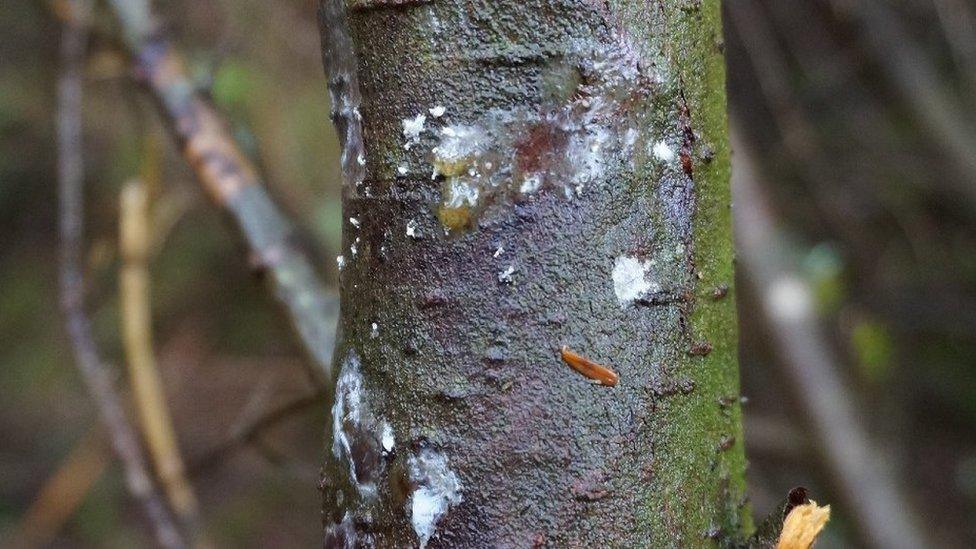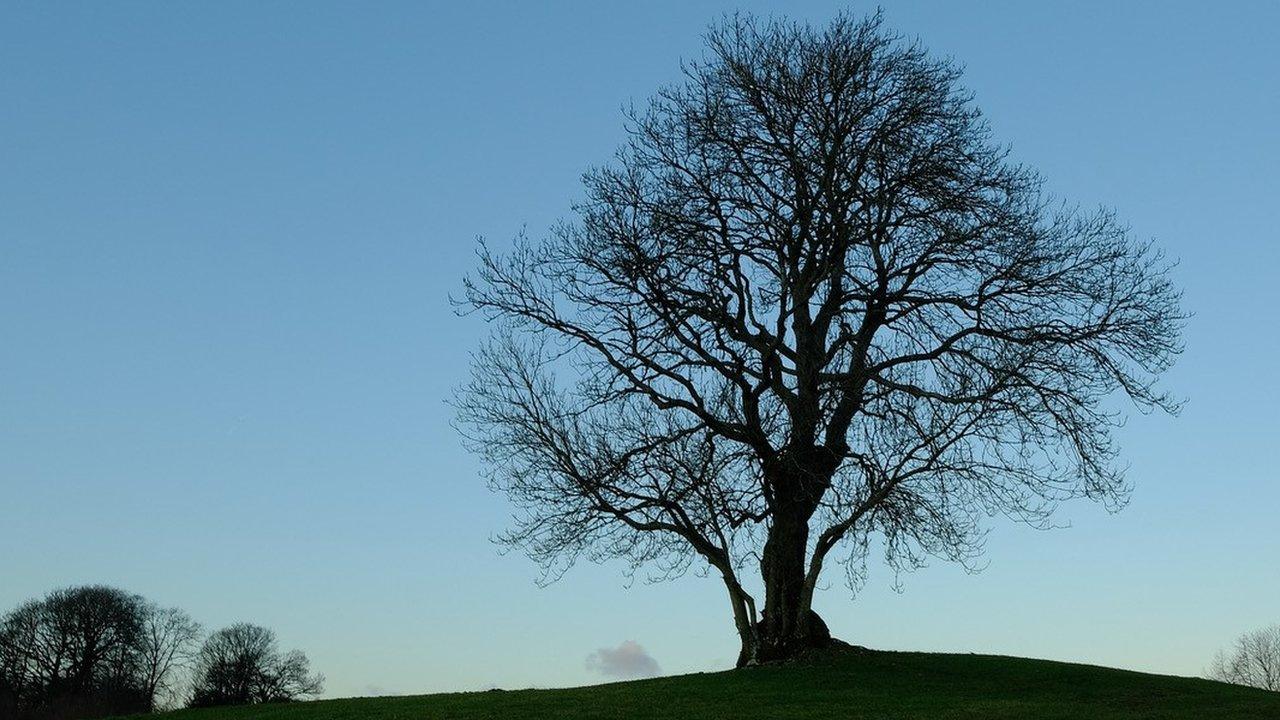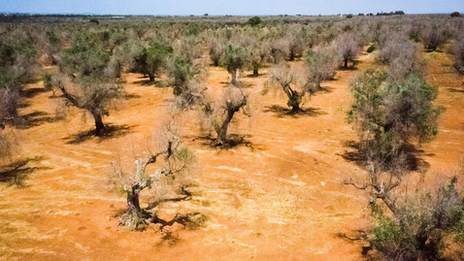'Robust action' taken against tree disease found in Cornwall
- Published

The disease is the first of its kind reported in Europe
A disease, the first of its kind reported in Europe, has been identified in a woodland in Cornwall.
Woodland managers, landowners, the forest industry and tree nurseries are being asked to remain vigilant after the tree pathogen Phytophthora pluvialis was identified.
A demarcated area has been created in Cornwall to restrict its spreading.
Nicola Spence, UK chief plant health officer, said: "We are taking swift and robust action against this."
The fungus-like pathogen is known to affect a variety of tree species including western hemlock, Douglas fir, tanoak and several pine species.
Restrict the spread
The demarcated area in Cornwall has been set up by the Forestry Commission to restrict the movement of materials capable of spreading the disease. A notice will be coming into force on 27 October.
Where the pathogen has been found in New Zealand and the USA it has caused needle cast, shoot dieback and stem lesions, said the Department for Environment, Food and Rural Affairs.
Plus, it has also been isolated from streams, soil and canopy drip.
Ms Spence said any sightings should be reported to the Forestry Commission through the Tree Alert online portal.
Further surveillance and analysis is being conducted by Forestry Commission, Forest Research and the Animal and Plant Health Agency to understand more about the pathogen and ensure any control measures are undertaken to stop the spread.
Currently it is unknown if the pathogen is the direct cause of the symptoms found on mature western hemlock and Douglas fir trees.

Follow BBC News South West on Twitter, external, Facebook, external and Instagram, external. Send your story ideas to spotlight@bbc.co.uk, external.
- Published2 October 2020

- Published17 November 2020

- Published13 April 2020
